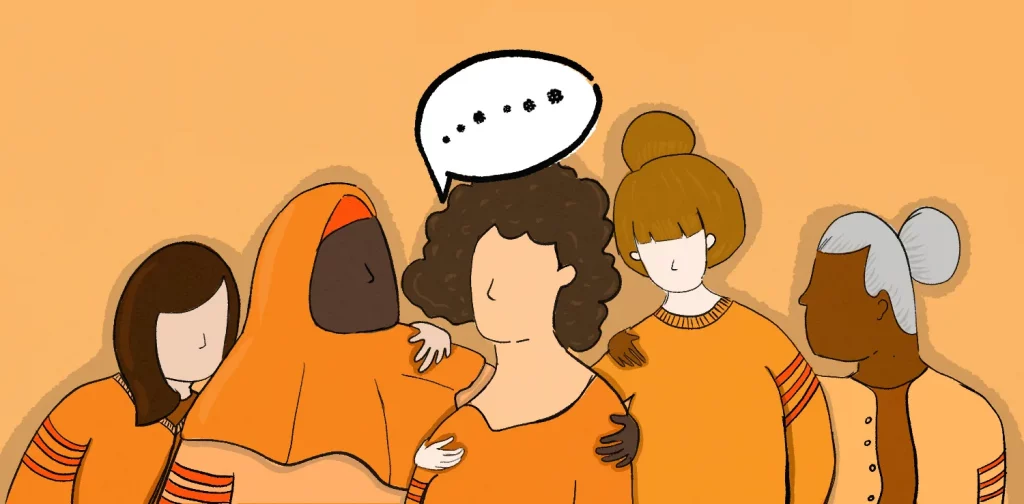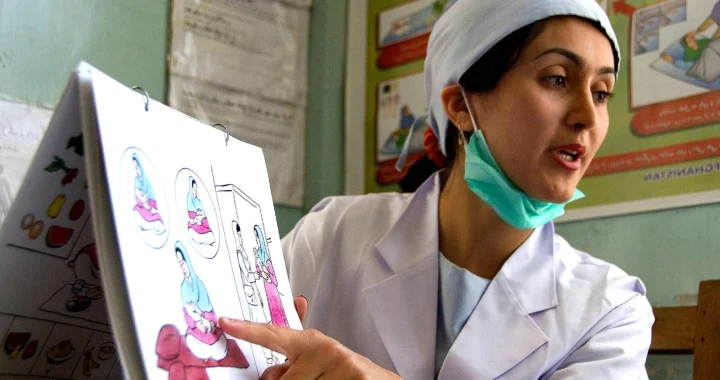Centering Survivors in Ending Violence Against Women

Illustration by Irhan Prabasukma.
Safety and peace are fundamental rights for every person. Yet, despite centuries of movement, women and girls are still vulnerable to violence. From their closest home environment to workplaces to online spaces, violence against women persists, often leaving the survivors with no voice and nowhere to turn to.
One in Three
Violence against women and girls is a human rights violation. Approximately one in three women worldwide has suffered physical and sexual abuse, often by an intimate partner. UNICEF also states that between 2005 and 2020, at least 14,200 children suffered from various sexual violence.
Experiencing abuse can cost a woman her whole life. Survivors of gender-based violence suffer from various physical and mental consequences such as unwanted pregnancies, HIV contraction, post-traumatic stress disorder (PTSD), and suicidal thoughts. It’s nearly impossible to navigate them alone.
Unfortunately, it’s not uncommon for survivors to shy away from getting help. The culture of victim blaming and social customs often hinder survivors from coming forward in fear of getting shamed or ostracized from society. In some cases, survivors are forced to marry their perpetrators as a form of ‘settlement.’ Other survivors don’t even have access to help at all, putting them at significant risk of poverty, isolation, and additional violence.
A Survivor-centered Approach
Creating a safe environment for survivors to navigate their lives after abuse requires a survivor-centered approach. It seeks to empower survivors by prioritizing their rights, needs, and wishes. It also means ensuring access to appropriate, accessible, and good quality services, including healthcare, psychological and social support, security, and legal services.
The key to a survivor-centered approach is returning agency, dignity, and respect to the survivors. Therefore, it is crucial for the service delivery actors, including legal aids and counselors, to possess the appropriate attitudes, knowledge, and skills to prioritize the survivor’s own experiences and input. In law-making, a survivor-centered approach also plays a significant role in ending violence against women.
“It is extremely important to speak to survivors and ask them frankly what would make their lives easier. We ask survivors what laws would make them feel safer, and hold the offender accountable, knowing that, especially in the case of domestic violence, the relationship between offender and victim may continue,” said Lori Flohaug, Director of Law and Policy at Global Rights for Women.
Violence against women is a broad and complex matter. However, one thing remains true: every woman and girl deserves to live safely and peacefully without fear. Providing care and guidance for the survivors at every level of society is essential. But, ending violence against women altogether still needs to be the primary goal. Putting the survivors at the center of prevention and mitigation measures can hopefully bring us one step forward to realizing a safe living environment for all.
Editor: Nazalea Kusuma

Co-create positive impact for people and the planet.
Amidst today’s increasingly complex global challenges, equipping yourself, team, and communities with interdisciplinary and cross-sectoral insights on sustainability-related issues and sustainable development is no longer optional — it is a strategic necessity to stay ahead and stay relevant.

Kresentia Madina
Madina is the Assistant Manager of Stakeholder Engagement at Green Network Asia. She holds a bachelor’s degree in English Studies from Universitas Indonesia. As part of the GNA In-House Team, she supports the organization's multi-stakeholder engagement across international organizations, governments, businesses, civil society, and grassroots communities through digital publications, events, capacity building, and research.


 Systemic Shift to Enable Healthy School Food Environments
Systemic Shift to Enable Healthy School Food Environments  Looking into the Global Midwife Shortage
Looking into the Global Midwife Shortage  Reframing Governance in the Era of Water Bankruptcy
Reframing Governance in the Era of Water Bankruptcy  Strengthening Resilience amid Growing Dependence on Space Infrastructure
Strengthening Resilience amid Growing Dependence on Space Infrastructure  Indian Gig Workers Push Back Against 10-Minute Delivery Service Strain
Indian Gig Workers Push Back Against 10-Minute Delivery Service Strain  Call for Governance: Grassroots Initiatives Look to Scale Efforts to Conserve Depleting Groundwater
Call for Governance: Grassroots Initiatives Look to Scale Efforts to Conserve Depleting Groundwater